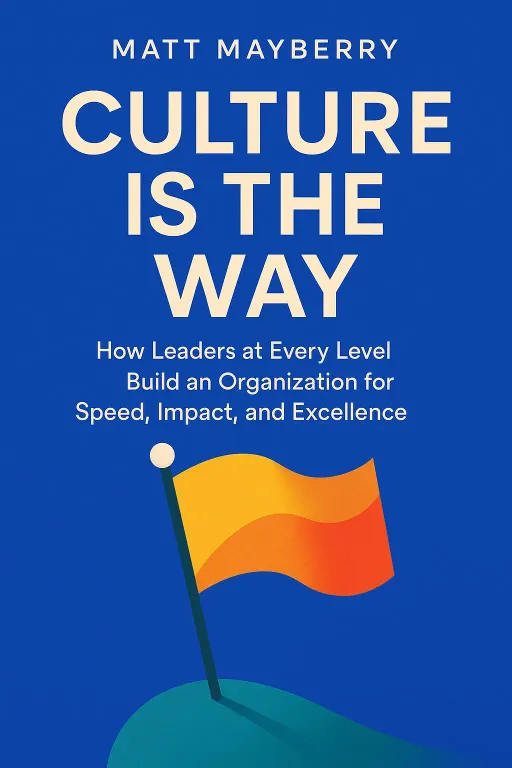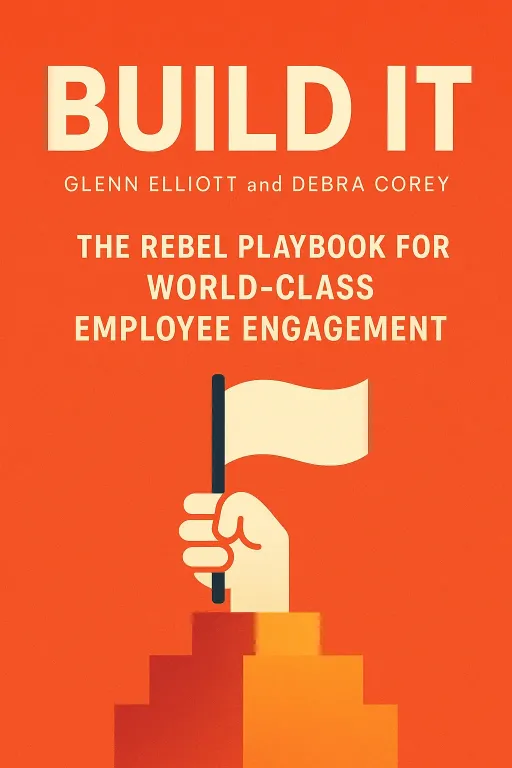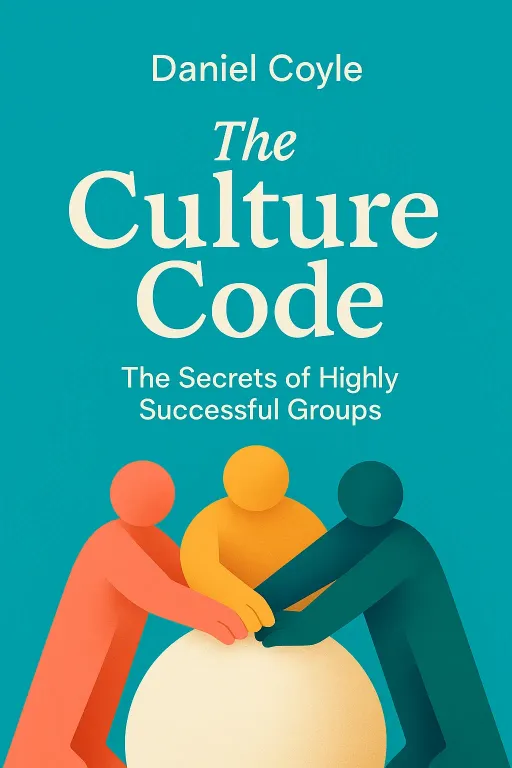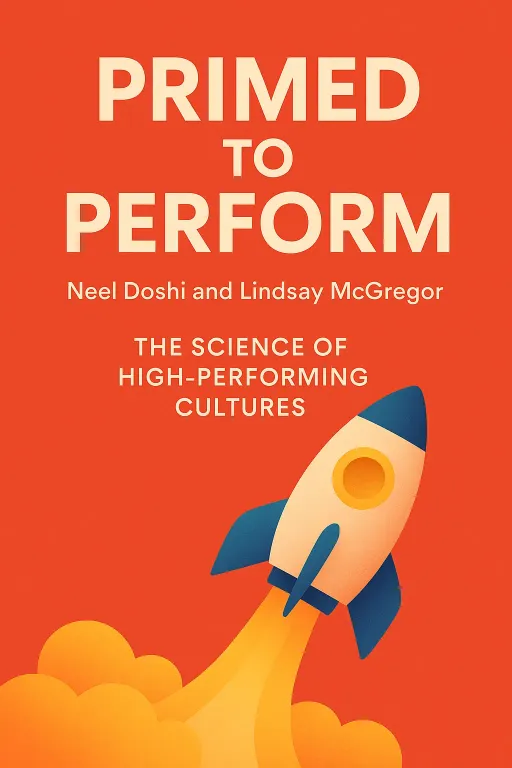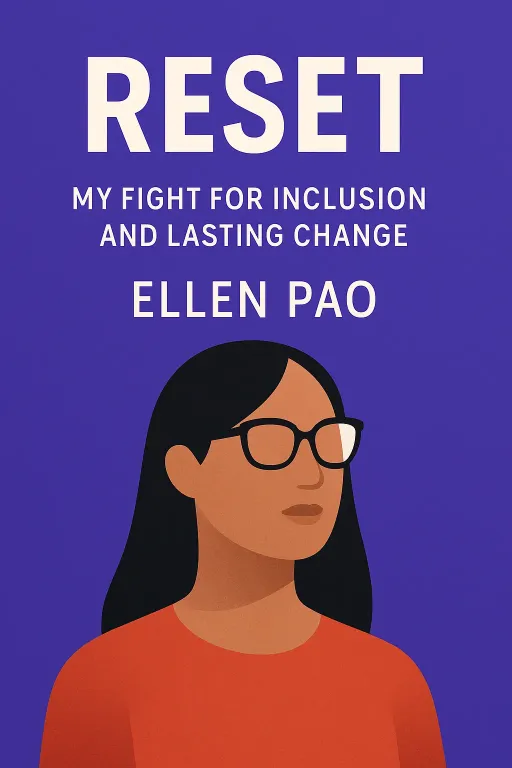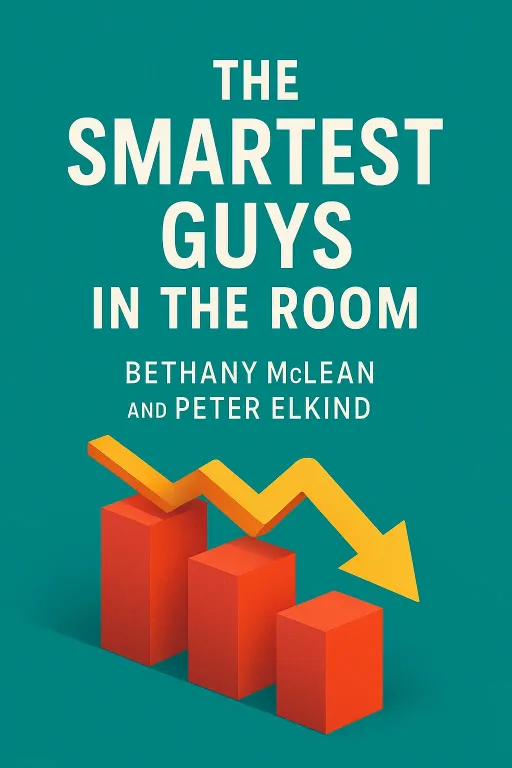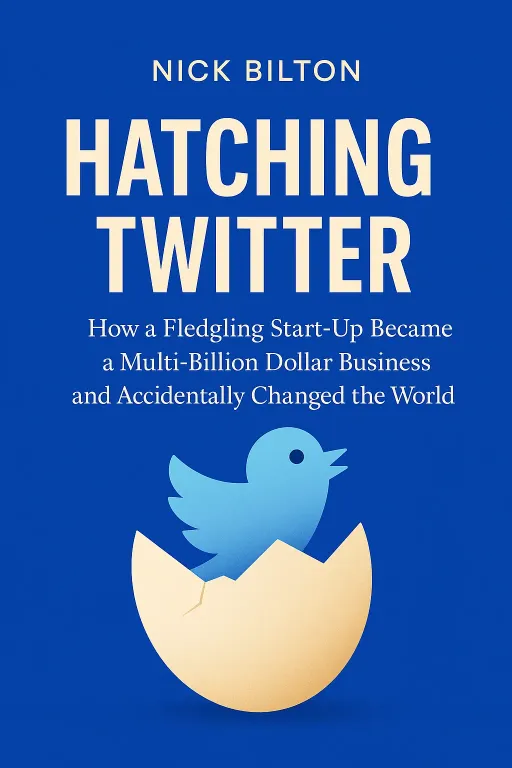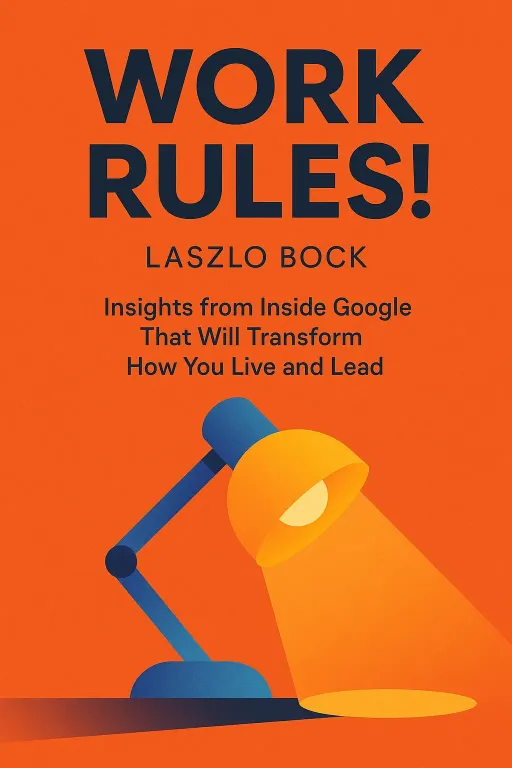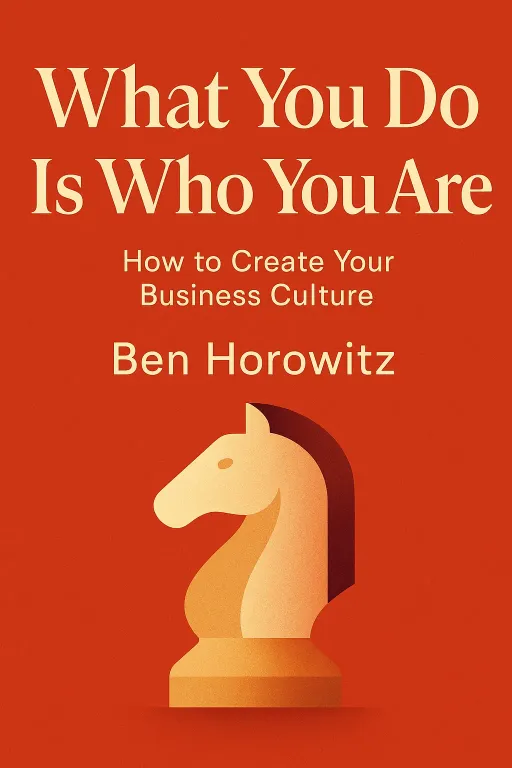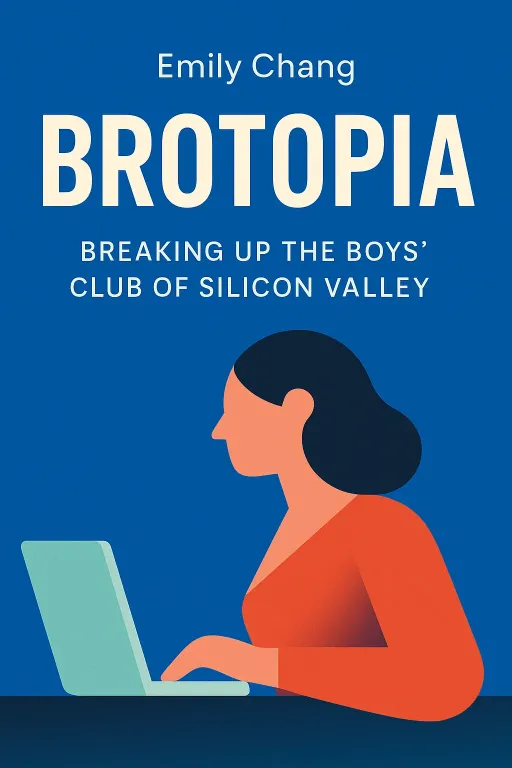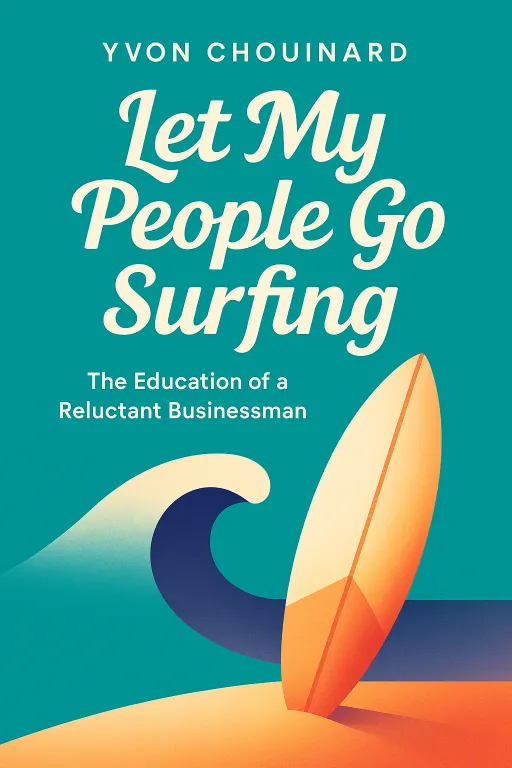
Patagonia's Anti-MBA
13 minThe Education of a Reluctant Businessman
Golden Hook & Introduction
SECTION
Michelle: Mark, if I told you the founder of a nearly billion-dollar company wrote his business plan as an ode to surfing, climbing, and being a "juvenile delinquent," what would you say? Mark: I'd say that sounds less like a business plan and more like my weekend plans that never quite pan out. And I definitely don't have a billion-dollar company. Michelle: (Laughs) Exactly! But that’s the magic of Yvon Chouinard and his book, Let My People Go Surfing. This is a guy who taught himself blacksmithing in a junkyard to make climbing gear because what existed wasn't good enough. The book itself started as an internal employee handbook and became this cult classic for entrepreneurs who want to do things differently. Mark: A blacksmith who accidentally builds a global brand. Okay, I'm intrigued. That sets a very different stage than your typical Harvard MBA story. Michelle: It really does. And that's the perfect place to start, because Chouinard never saw himself as a businessman. He says, "I was a climber, a surfer... a blacksmith." He even compares entrepreneurs to juvenile delinquents. Mark: A juvenile delinquent? That’s not exactly the praise you see on a LinkedIn profile. What does he mean by that? Michelle: He says the delinquent is the one who looks at the world and says with his actions, "This sucks. I'm going to do my own thing." For him, business wasn't a goal; it was a byproduct of his passion for making things better.
The Reluctant Businessman: Craftsmanship Over Corporation
SECTION
Michelle: His first company, Chouinard Equipment, was born out of necessity. In the 50s, the pitons—those metal spikes climbers hammer into rock—were soft, single-use, and frankly, dangerous. So he bought a used forge and anvil and started making his own out of a stronger steel alloy. Mark: So he was literally forging his own path. Michelle: Literally. And he wasn't trying to build an empire. He was making gear for himself and his friends, tools your life depended on. He sold his superior pitons for a dollar fifty, while the flimsy imported ones were fifteen cents. And he ended up capturing about 75% of the market. Mark: A 10x price for a 10x better product. That makes sense. He must have been rolling in it. Michelle: Not at all. He admits the business ran on a razor-thin 1% profit margin. He was a craftsman, not a financier. His focus was entirely on the product. This is the first and most important philosophy in the book: "Make the best product, period." Profit, he argues, is just a vote of confidence from your customers that you're doing things right. Mark: That sounds noble, but a 1% margin is a fast track to bankruptcy. Passion doesn't pay the bills. Michelle: And he learned that the hard way. There's a fantastic, and painful, story in the book about their first major foray into clothing. They decided to import rugby shirts because they were durable and perfect for climbing. They placed a huge order with a factory in Hong Kong—three thousand shirts a month. Mark: That sounds like a big leap. Michelle: It was a disaster. The shirts were terrible. They shrank, the colors bled, some even had three-quarter-length sleeves. They were stuck with thousands of defective shirts and nearly went bankrupt. It was a brutal "education," as the book's subtitle says. Mark: Ouch. So that was the moment the "juvenile delinquent" had to grow up and actually become a businessman? Michelle: Exactly. He realized he had employees with families who depended on the company's success. He had to get serious. But—and this is the key—he was determined to do it on his own terms. He says, "If I had to be a businessman, I was going to do it on my own terms." He wasn't going to become one of those "pasty-faced corpses in suits." Mark: I love that phrase. So how does one get serious without selling their soul and becoming a pasty-faced corpse? Michelle: By defining your own rules. For instance, he calls himself an "80 percenter." He throws himself into a sport until he's at about an 80% proficiency level, and then he moves on. He says going for that last 20% requires a level of obsession and specialization that doesn't interest him. Mark: That's fascinating. Most business gurus preach the 10,000-hour rule, total mastery. He's advocating for being a passionate generalist. Michelle: Precisely. And he believes that's why Patagonia's products are so successful—they're versatile and multi-functional, designed by someone who does a lot of different things. It’s a direct reflection of his personal philosophy. It’s not about being the biggest, it’s about being the best, and to him, the best comes from this broad, craftsman-like perspective, not from a narrow corporate one.
Management by Absence & The Philosophy of Stress
SECTION
Mark: Doing it on his own terms... that sounds like a nice platitude. But what does it actually look like? I mean, the title of the book itself, Let My People Go Surfing, sounds like a recipe for anarchy. How does anything get done? Michelle: It sounds like it, but it's rooted in a philosophy of radical trust and personal responsibility. He has this theory he jokingly calls his "MBA"—Management by Absence. For years, he'd be gone for months at a time, testing gear in the Himalayas or fly-fishing in remote corners of the world. Mark: So the CEO just… leaves? Most companies would implode. Michelle: That’s what you’d think. But there’s this incredible story that illustrates his mindset perfectly. The anchorman Tom Brokaw, who was a friend of Chouinard's, tells a story about his first time ice climbing with him on Mount Rainier. Mark: I have a feeling this isn't going to be a standard safety-first tutorial. Michelle: Not even close. Brokaw had basically no experience. They get to a steep, treacherous patch of black ice. A slip meant a thousand-foot fall. Brokaw, terrified, says, "Yvonne, we should rope up here." And Chouinard just looks at him and says, "No way. If you go, then I go, and I don't want to do that. This is like catching a taxi in New York on a rainy day, it's every man for himself." Mark: Wow. That is… terrifying. But I get the point. It’s the ultimate form of personal accountability. You are responsible for yourself. Michelle: Exactly. And he applies that same logic to his company. He hires independent-minded people—people he says would be "unemployable" in a typical corporation—and then trusts them completely. The "Let My People Go Surfing" policy works because if the waves are good, you go. But you are trusted to get your work done. It’s not about hours logged; it's about responsibility. Mark: Okay, the ice climbing story is brutal, but it makes the point. But he takes it even further, right? He talks about intentionally stressing the company. Most managers spend their lives trying to avoid crises. How does that not just burn people out? Michelle: He sees it through a Darwinian lens. He quotes Charles Darwin: "It is not the strongest of the species that survives, nor the most intelligent, but the one most responsive to change." He believes that without stress, there is no evolution. Complacency is death. Mark: So he's actively creating problems? Michelle: Not random chaos. He's creating challenges that force the company to adapt and grow. He tells this amazing story about nomadic societies. A wise leader knows you don't just move when things get bad. You also move when everything is going too well—when everyone is "laid back, lazy, and happy." Because if you don't move when you're strong, you won't be able to when a real crisis hits. Mark: That is so counter-intuitive. You move when you're comfortable, not when you're forced to. Michelle: Yes! He says a wise CEO will "invent" a crisis. Not by crying wolf, but by challenging employees with a major change. He points to their 1994 decision to switch the entire sportswear line to 100% organic cotton within two years. It was a massive, company-wide crisis. It forced everyone to mobilize, innovate, and rethink everything. And it was that crisis, he says, that led them to formally write down their philosophies and truly understand who they were. Mark: So it’s not stress for stress's sake. It's a mission-driven stress that forges a stronger identity. Michelle: That's the perfect way to put it. It's the difference between a controlled fire that clears out underbrush and a wildfire that destroys the whole forest. He's using stress as a tool for evolution.
The Earth as the Primary Shareholder
SECTION
Michelle: And that switch to organic cotton is the perfect bridge to his ultimate philosophy, the one that defines Patagonia today: that the business exists to inspire and implement solutions to the environmental crisis. Mark: This is where the story gets really radical. Most companies see environmentalism as a line item, a cost center, or at best, a PR department. Michelle: For Chouinard, it's the entire reason for being. His financial philosophy starts with the line: "Fundamentally, businesses are responsible to their resource base. Without a healthy environment there are no shareholders, no employees, no customers and no business." The Earth is the primary shareholder. Mark: That completely flips the script on traditional capitalism. Michelle: It does. And he proved it decades ago. Back when the company was still Chouinard Equipment, their best-selling, most profitable product was the steel piton. But they were damaging the rock, leaving permanent scars on mountains. Mark: The very thing they loved. Michelle: Exactly. So in their 1972 catalog, they published a 14-page essay on "Clean Climbing," advocating for climbers to use removable aluminum chocks instead. They essentially told their customers to stop buying their best-selling product. Mark: That's business suicide. You're actively telling people not to buy your cash cow. Michelle: It's what any rational CEO would call suicide. And their piton business dried up almost overnight. But their chock business exploded. They lost a product but gained immense credibility and solidified their image as a company that lived its values. They took a huge financial hit in the short term to do the right thing, and it became the foundation of their long-term success. Mark: That’s an incredible story. It’s one thing to say you have values, it’s another to willingly sacrifice your biggest revenue stream for them. Michelle: And that ethos led to the creation of the 1% for the Planet alliance, where companies pledge to donate 1% of their sales—not profits, sales—to environmental groups. It's what he calls an "earth tax." Mark: This is where it gets tricky for me, though. It's an amazing story, but Patagonia is still a company that sells stuff. They even ran that famous "Don't Buy This Jacket" ad during Black Friday. How do they reconcile being anti-consumerist while being a consumer brand? Is it authentic, or just the most brilliant marketing campaign ever? Michelle: That's the central paradox, and it’s a criticism the book has faced. Some readers see it as a "humble brag." But Chouinard addresses it head-on. His argument is that we're not going to stop consuming, so the goal should be to make things of the highest quality that last a lifetime, can be repaired, and are made with the least possible harm. The "Don't Buy This Jacket" ad was a plea to think before you buy, to repair what you have, to consume less. It's a complex, and maybe imperfect, position, but it's a conversation most companies aren't even willing to have. Mark: So it's about responsible consumption, not no consumption. Buy less, but buy better. Michelle: Exactly. He wants to change the definition of "consumer" from one who "destroys and spends wastefully" to a citizen who makes conscious, responsible choices.
Synthesis & Takeaways
SECTION
Michelle: When you put it all together, you see it's not just a collection of quirky ideas. It's a fully integrated system. You have this foundation of craftsmanship, a management style built on radical trust and stress, and an ultimate purpose of environmentalism. Mark: And they all feed into each other. Michelle: They have to. The reason "Management by Absence" works is because they hire passionate craftsmen who are intrinsically motivated to do great work. You don't need to micromanage someone who is already obsessed with quality. Mark: And the reason they can take these huge environmental risks, like killing their best product, is because their customers trust the quality and authenticity that comes from that craftsmanship. They've earned that loyalty. Michelle: It's a flywheel. The product quality builds trust, the trust allows for radical management, and the management style attracts the kind of people who will pour their souls into upholding the company's environmental mission. It all connects. Mark: It makes you wonder, what is the 'resource base' for your own work? And are you protecting it? For Chouinard, it was literally the mountains and oceans. For a writer, it might be curiosity. For a programmer, it might be logic and creativity. It's a powerful question for anyone, not just a CEO. Michelle: Absolutely. And Chouinard’s answer is that you protect it through action. He quotes Dante, saying, "the hottest places in hell are reserved for those who in times of great moral crisis maintain their neutrality." He believes that if you have the ability and resources to do good and you do nothing, that can be a form of evil. Mark: That's a heavy, but powerful, final thought. It's not just about surfing. It's about taking responsibility. Michelle: We'd love to hear what you all think. What's one 'unconventional' rule from this book you'd love to apply to your own work or life? Let us know. Michelle: This is Aibrary, signing off.
